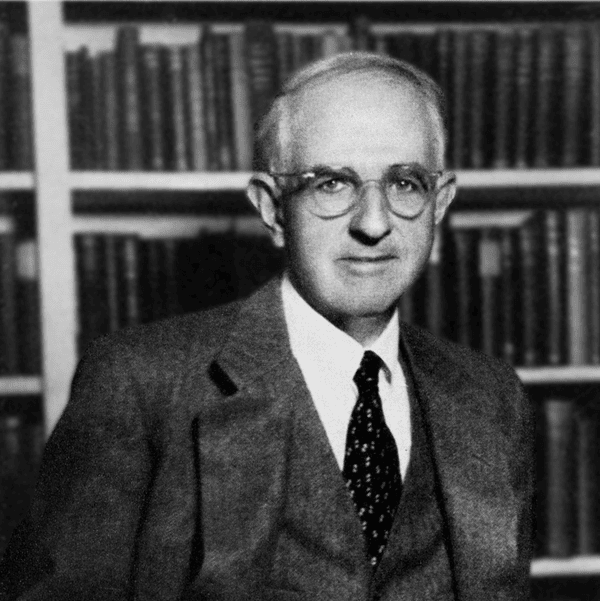Presidential Address
The Historical Spirit Incarnate: Frederic William Maitland
In Memoriam
From the American Historical Review 72:2 (January 1967)
Robert Livingston Schuyler (February 26, 1883–August 15, 1966). The death of Robert Livingston Schuyler, professor emeritus at Columbia University, on August 15, has left our historical company poorer. He was editor of the American Historical Review from 1936 to 1941 and president of the American Historical Association in 1951. To those who knew him he was a very great gentleman who taught his students as much by his personality as by didactic instruction. His unerring taste played conscience to them, for when tempted to indulge in some dubious metaphor, dubious alike in relevance and propriety, many a student excised his flight on asking himself: “What would RLS have said to that?” Kind but never soft, he had no patience with pretense and humbug. Never claiming overmuch for himself (“I am,” he once remarked, “a writer of articles, not of books.”), he could appraise his contemporaries and earlier historians as well. No one can read his essays on Green and Macaulay and, above all, his hero, Maitland, and fail to sense his perception of quality. No one can read the essays in Parliament and the British Empire without appreciating that a sure guide is leading him through intricate mazes. At his best with a limited subject, Schuyler had the knack of distilling from accessible materials applications beyond the immediate issue. At the same time he was constantly alive to the quicksands of anachronism, where his sensitivity embraced both things and words and prompted him to condemn the jargon that labels everything and comprehends nothing. He did not waste words; nor did he debase them. Among all the qualities that drew him to Maitland—luminous, concrete, sensitive, ever so learned—none appealed to him more than that great historian’s concern with the proper use of words and his awareness of the grave dangers, far beyond mere semantics, in disregarding changes in meaning. These qualities Schuyler passed on to his students, and, if such qualities are less striking than novel interpretations or monumental generalizations, they are no less to be cherished. In the surest way he taught his students and his readers too had they the wit to see—not merely the rudiments but the very being of historical study.
Bibliography
The transition in Illinois from British to American government, by Robert Livingston Schuyler. New York: Columbia University Press, 1909.
Constitutional history of England, by George Burton Adams. Revised by Robert L. Schuyler. New York: H. Holt and company, 1934.
The Constitution of the United States. New York: Macmillan, 1923.
The fall of the old colonial system; a study in British free trade, 1770-1870, by Robert Livingston Schuyler New York, London: Oxford University Press, 1945.
Parliament and the British Empire; some constitutional controversies concerning imperial legislative jurisdiction. Hamden, Conn.: Archon Books, 1963.
British constitutional history since 1832, by Robert Livingston Schuyler and Corinne Comstock Weston. Princeton: Van Nostrand, 1957.
The fall of the old colonial system; a study in British free trade, 1770-1870. Hamden, Conn.: Archon Books, 1966; 1945.
